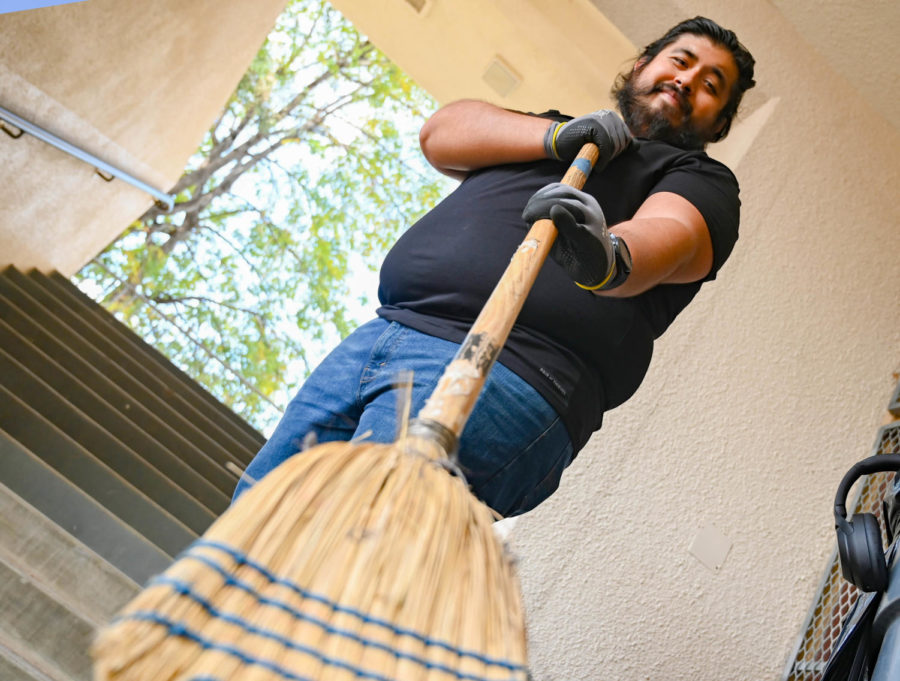3 years ago, Gabriel Figueroa walked through the doors of the Limestone County Prison in east Texas. It was his first day as a guard.
His heart was racing like a stampede of wild horses, as he tried to maintain a composed demeanor. He entered the building, which was teeming with frenzied energy. Nervously, he attempted to recall the information that he had learned from his three-week training period.
His training was packed with dozens of lessons that taught him how to identify the meaning of tattoos on inmates, and recognize different illegal drugs that are smuggled into prisons.
On his final day of training, he and his classmates got to experience prison life from the perspective of an inmate, forced to endure the burning sensation of pepper spray.
At the start of each day corrections officers would take roll, going from cell-to-cell, calling out inmate names to account for all of the prisoners.
Officers had to firmly adhere to a schedule in order to avoid aggression or dissatisfaction among inmates. Even small tasks, like having trusties (convicts who are trusted and given privileges) distribute lunch trays, could become a source of disorder in the prison.
With his unwavering impartiality and stern demeanor, Figueroa quickly climbed the ranks of the prison system. Soon enough, he was training his own batch of new recruits.
Figueroa discovered the delicate art of training. He knew that to inspire them, he must strike a balance between motivational guidance and honest instruction, avoiding the pitfall of pushing them away from the role.
“You can’t scare them with too much info,” he said. “You can’t be too friendly with even your own officers, because then they won’t take the job seriously.”
For a corrections officer, safety is always at the mercy of the inmates. Figueroa found this unpredictability made it difficult to find comfort in his work.
“Working every single day, and having little to no rest was tough,” he said. “Not knowing if you’re going to come back out, it really just messes with you.”
The most challenging aspect for him was navigating trust. Corruption, fueled by bribery, was a pervasive problem among the officers.
“They smuggled in stuff like cigarettes and contrabands,” he said. “They got paid, and I lost a lot of trust in people that way.”
For some corrections officers, the allure of extra money proved too great, even if it meant succumbing to corruption. Though he did not condone such behavior, Figueroa remained understanding of the struggles that led his colleagues to make such choices.
Inmates were deprived of everything from drugs to women which they valued highly in their lives before incarceration.
Pill pass, the time when nurses distributed prescription medication, was a particularly volatile moment. Vulgar comments filled the air, and the cacophony of fists pounding on metal cell doors sent vibrations through the room.
This time period was stressful for Figueroa, his anxiety and unease would build up as he struggled to de-escalate the inmates.
“One time, I had four inmates push open the door, and they were all staring at me and saying ‘What are you going to do?’ At first I was kind of stunned.”
But Figueroa knew how to keep his composure.
“I had to keep a straight face,” he said. “I had to not look scared. I had to tell them to get back and command them to get inside. They would threaten me.”
For Figueroa, the constant fear and anxiety proved to be too much.
“Everytime you go into that job, you just don’t know what’s going to happen,” he said.
During the morning meetings, corrections officers were told upsetting news that described various emergencies of either the inmates or officers getting injured.
Bad news went both ways. In some instances, inmates were forced to hear about the loss of a family member through a phone and a glass wall.
Figueroa recalled a moment where he had to watch a convict lose his daughter. Helplessly, he stood by, unable to offer any kind of comfort or solace.
“How do you console someone when you’re an officer and they’re an inmate?” he said. “You can’t hug them. You can’t tell them it’s going to be okay. You don’t know what to say.”
The stark contrast between prison and the outside world shifted Figueroa’s perspective, as he began to appreciate his surroundings more deeply.
“As a person, it made me a lot more conscious of what is around you, and what you have outside in this world,” he said. “Once you get locked up, the world changes.”
By the end of his career as a corrections officer, Figueroa was mentally exhausted. PTSD (post-traumatic stress disorder) from traumatizing incidents haunted and drained him, as the terrifying days in the prison replayed in his mind.
“You just feel dirty by the end of the day,” he said. “You go home from this place and you just feel dirty. It really takes a toll on the family. A lot of the jobs that you have now, they tell you don’t bring your stress home, but when you’re a corrections officer, it’s kind of hard not to do that.”
After toiling away for years in the bleak halls of a detention center, Figueroa made the difficult decision to leave it all behind and return to California with his family. He packed up all of his possessions into a Uhaul, and embarked on a grueling 23-hour journey across the country.
Upon his arrival in California, Figueroa quickly landed a new job as a custodian at Van Nuys High School. But despite the change in location, he found that some things remained the same. Just like his days as a corrections officer, he follows a strict routine that begins at 1:00 p.m.
“The first thing I always do is help out around the lunch area,” Figueroa said. “After that, I’ll get started on the 300s building, and by a set time everything’s pretty much done around 3:25 pm.”
Figueroa takes the time to chat with the teachers he encounters, who appreciate his upbeat attitude and bright smile. But his smile is not just for show; it’s a deliberate choice, one he makes to maintain a positive outlook, especially for his daughter.



